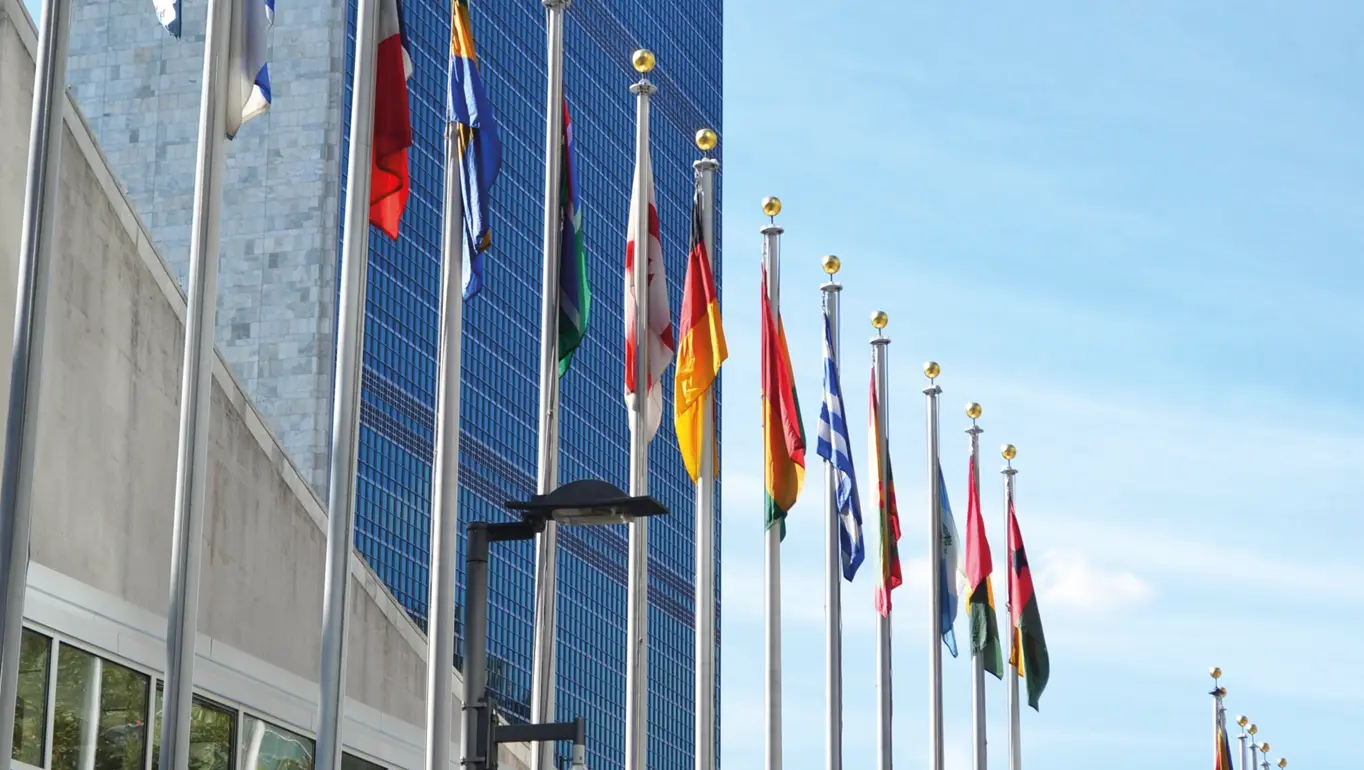The United Nations came into fruition on 24 October 1945, after the UN charter was signed earlier that year in June. Set out to rebalance world politics and improve lives after the turmoil of World War Two, the UN has certainly achieved that.
Secretary-General António Guterres reaffirmed this sentiment when he stated “Eight decades later, one can draw a direct line between the creation of the United Nations and the prevention of a third world war.”
After eight decades of the world’s most prestigious organization, the United Nations has survived many crises, from wars to world leaders and everything in between. Now as it looks to the future, preventing a third world war is not the only aim and the organization faces new challenges.
This year, to celebrate eight decades of the UN, 24 October means more than a chance to renew pledges as a new initiative entitled “UN80” was launched by Secretary-General António Guterres in March 2025.
What is UN80?
Aiming to build on the work and reach of the United Nations, the Secretary-General declared this anniversary would be different.
In his speech to launch UN80 he said: ”It is only natural – especially in a period of turbulence and tumult – to look ahead and ask central questions: How can we be the most effective organization that we can be? How can we be more nimble, coordinated and fit to face the challenges of today, the next decade, and indeed the next 80 years? The UN80 Initiative is anchored in answering these questions – and equipping our organization in an era of extraordinary uncertainty.”
With its aims outlined, how does the UN intend to answer these questions?
The organization looks to take a three-pronged approach. First, they are striving to rapidly identify efficiencies and improvements within the current arrangements. Second, the UN is carefully reviewing the implementation of all mandates entrusted by Member States. Finally, they are considering the need for structural changes and program realignment across the UN system.
There is a Working Group spearheaded by Under-Secretary-General Catherine Pollard that is putting together a new business model for the UN. This has the ultimate aim to ensure costs can be reduced whilst streamlining and making adjustments to current working methods. Other areas of efficiency-enhancing include relocating services from high-cost duty stations, centralizing IT and other support services, and human resources management.
The mandate implementation review looks to optimize the way mandates are executed by Member States. This requires review, identification of all mandates in the program budget and then a deep examination through analysis.
After this review process, Member States are welcome to come forward with any suggestions to improve and review the mandates. The current system stretches the capacities of the Member States so any new processes will be a welcome approach.
The final proposal is to implement structural changes. The UN System Chief Executives Board for Coordination met back in May to kick off discussions and there is an expectation that the review process mentioned above will highlight key areas for change.
How will UN80 operate?
The Secretary-General has already published a new slimline budget proposal for 2026 cutting the budget by 15% and positions by 18% across the board. This hasn’t been without controversy and the General Assembly will need to negotiate and take a decision by December. It won’t be easy.
The UN has also published a report and produced a website identifying thousands of mandates that Member States could attempt to streamline. However, it is not clear that this review will end any differently to a previous review in 2006 that was largely considered to be a failure.
Finally the SG has produced a report called “Shifting the Paradigm” that makes some suggestions such as locating entities’ regional offices in the same place as regional commissions, creating an economic helpdesk for countries to contact in order to get advice, integrating various statistical databases and improving IT procurement.
Looking ahead
It could be that future generations will be able to benefit from the organization that is more agile, cohesive, efficient, and impactful amid escalating global challenges and constrained resources.
Or, as its critics have said, the UN could emerge weaker and less relevant.
Time will tell how UN80 will pan out.



